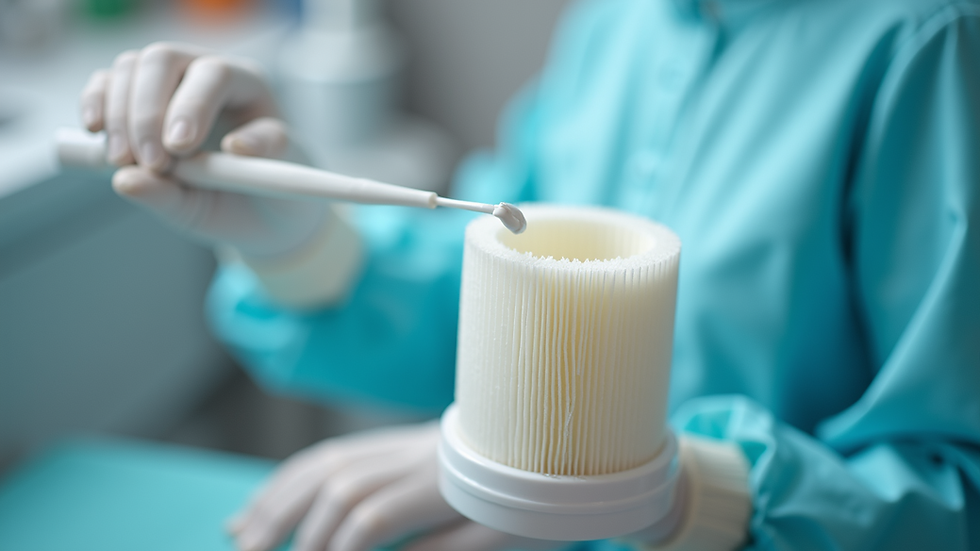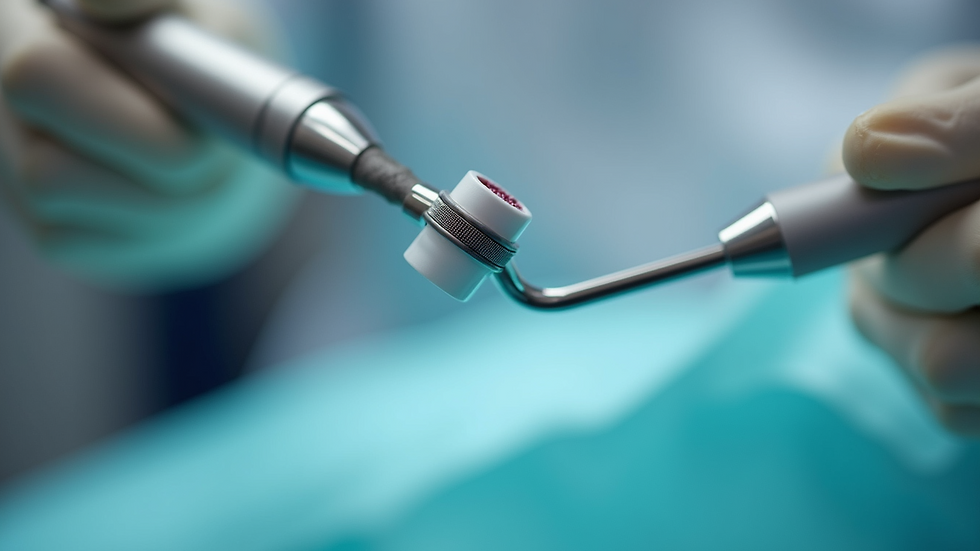Understanding the Basics of Dental Equipment Upkeep
- Randy Coppernoll
- Feb 27, 2025
- 3 min read
Maintaining dental equipment is crucial for ensuring the longevity and efficiency of tools used in everyday practice. This guide is designed for dental professionals who want to improve their understanding of equipment upkeep, leading to a more productive and cost-effective dental operation.
Dental Upkeep: Importance of Regular Maintenance
Regular maintenance of dental equipment helps to prevent malfunctions and prolong the lifespan of tools. From sterilizers to radiography machines, routine checks can save time and avoid costly repairs. Research shows that well-maintained equipment can reduce incidents of infection and improve patient outcomes.
In a typical dental practice, the cost of downtime due to unexpected equipment failure can be substantial. For instance, studies indicate that a single day of service disruption can cost a practice thousands of dollars in lost income. A regular upkeep schedule can minimize such risks.

Key Components of Dental Equipment Maintenance
To ensure that equipment functions efficiently, focus on these essential components:
Routine Inspections: Schedule regular inspections of all major equipment. Check for visual clues of wear and tear and listen for unusual noises during operation.
Cleaning Protocols: Establish a daily cleaning routine that includes disinfecting surfaces and cleaning internal components of devices. Ensure that all materials used for cleaning are appropriate for the equipment type.
Calibration and Testing: Equipment like X-ray machines require regular calibration to ensure accuracy. This might involve monthly checks based on usage frequency.
Record Keeping: Maintain detailed records of maintenance activities performed, including dates, specific checks, and any repairs made. This log will be invaluable during audits or if issues arise.

Understanding Advanced Equipment Care
Certain specialized dental instruments require unique care considerations. For instance, digital imaging devices need updates and software maintenance to keep up with regulatory standards. It's crucial to stay informed about the manufacturer's guidelines for each type of equipment used in your practice.
Furthermore, preventative maintenance contracts can be beneficial. Many manufacturers offer service agreements that include regular inspections and prioritized service in emergencies. Engaging with professionals who specialize in dental equipment repair can also complement in-house upkeep efforts.

Training Staff on Equipment Care
A well-informed team contributes significantly to equipment maintenance. Conduct regular training sessions to ensure all staff members understand the importance of equipment care and familiarize them with the manufacturer's instructions. When everyone in the practice is aware of procedures, the potential for errors decreases.
Encourage team members to report any unusual behaviors or changes in equipment performance right away. This proactive approach allows for prompt action, preventing minor issues from escalating.
Choosing the Right Tools for Maintenance
Investing in the right tools facilitates effective upkeep. A good cleaning station should include:
Appropriate disinfectants for surfaces and instruments
A sterile storage area for all dental tools
Devices for verifying the calibration of radiological equipment
Additionally, consider software solutions for tracking maintenance schedules and staff training. Tools like practice management software can streamline these processes and ensure nothing is overlooked.
Ongoing Education and Adaptation
The field of dentistry is continually evolving, and so are the technologies and tools used. Staying updated on the latest advancements and methods for dental equipment upkeep is essential for a successful practice. Attend workshops, read industry journals, and participate in online forums to stay informed.
Moreover, maintain flexibility in your approach. As new techniques and tools become available, your maintenance process should adapt accordingly. Being open to change not only improves equipment performance but can also enhance patient satisfaction and outcomes.
Final Recommendations for Efficient Equipment Upkeep
In summary, dental equipment maintenance is more than just performing routine checks. It requires a comprehensive strategy that includes staff training, investing in the right tools, and staying informed about industry standards. By implementing these practices, you can ensure that your equipment remains in top condition and provides the best possible care for your patients.
Regularly assessing your maintenance protocols and making necessary adjustments will go a long way in achieving long-term efficiency and reliability in your dental practice.



Comments